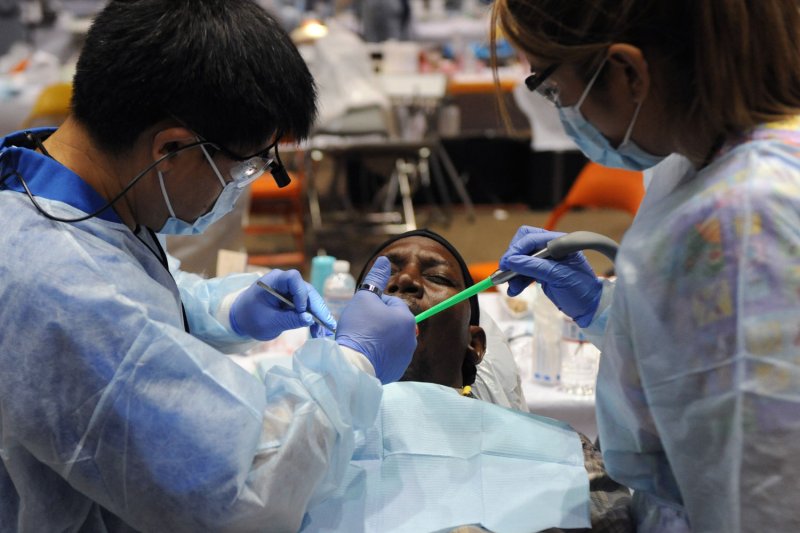Researchers at Case Western found that treating gum disease improved the symptoms of men dealing with prostatitis. File photo by UPI/Jim Ruymen |
License Photo
CLEVELAND, May 5 (UPI) -- There's a fair amount of physical and biological distance between the gums and the prostate gland, but research suggests the two are linked.
Previous studies have suggested a link between gum disease and prostatitis, inflammation of the small gland responsible for producing semen. Now, new research shows treating gum disease improves prostatitis symptoms.
"This study shows that if we treat the gum disease, it can improve the symptoms of prostatitis and the quality of life for those who have the disease," Nabil Bissada, lead author of a new study on the subject and chair of Case Western Reserve's periodontics department, said in a press release.
The new study adds to a growing body of evidence that shows gum disease is often simply one expression of an inflammation malady affecting multiple systems and organs. Previous research at Case Western's dental school has linked gum inflammation to fetal deaths, rheumatoid arthritis and heart disease.
As part of the latest study, researchers observed 27 male patients, 21 years and older, whose bloodwork showed elevated prostate specific antigen (PSA) levels, a biomarker for inflammation and cancer.
The majority of the men were found to have little to no inflammation, but 15 had biopsy-confirmed malignancies. Two of the patients had both inflammation and a cancerous growth. All showed signs of gum disease.
Researchers found that after the men were treated for their gum disease -- but not treated for their prostate symptoms -- the majority experienced diminishing PSA levels. Most of those who had reported inflammation or trouble urinating experienced a lessening of their symptoms. Six men experienced no changes in symptoms or PSA levels.
Bissada and his colleagues are currently conducting followup research; they hope dental care will soon become a more integral part of treating prostate disease. Their work was recently detailed in the journal Dentistry.















